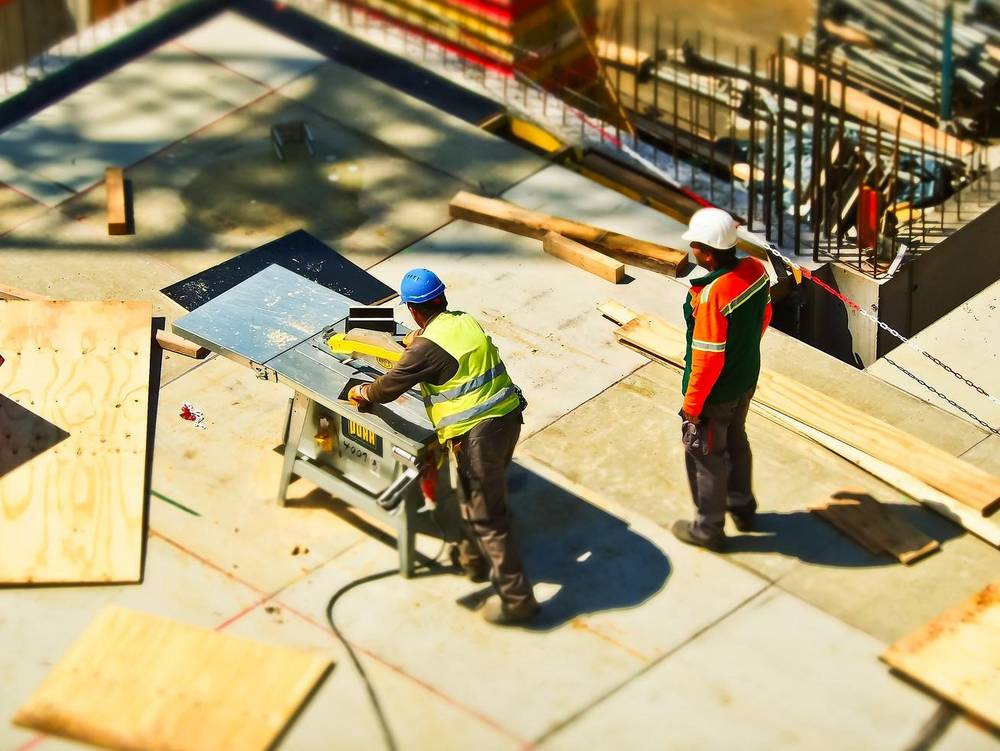On 26 April 2023, ahead of International Workers’ Day, 1 May, the Human Rights Ombudsman Peter Svetina invited representatives of unions for a work meeting where they talked about the issue of protecting the rights of employees and the unemployed as well as about the importance of social dialogue on the level of the state and individual employers. The Human Rights Ombudsman writes about this regularly in Annual Reports, publicly brings attention to this issue, and addresses proposals and recommendations to competent bodies for changes and the improvement of the existing situation.
Lidija Jerkič, President of the Association of Free Trade Unions of Slovenia, Aljoša Čeč, a representative of PERGAM, the Confederation of Unions, and Gvido Novak, President of the Confederation of Trade Unions, participated at the meeting with the Ombudsman.
The Ombudsman stresses that the trilateral dialogue between workers, the state, and employers is the foundation for the agreements concerning workers’ rights and other democratic achievements on the level of the European Union. This dialogue is also the foundation of the operation of the International Labour Organization which has adopted several conventions in this regard. These are also valid in Slovenia. “It is important to establish confidence in the process of negotiations about salaries and other workers’ rights. Constant changes in the positions of those responsible and delaying of the prepared timeline are definitely not a good signal for the unions and other negotiations participants. The social dialogue is important for a healthy and even development of society, and only this way can a balance be achieved between the economic goals of competitiveness and the social goals of social cohesion,” said Ombudsman Svetina.
The meeting participants agreed that work must remain a value and thus be appropriately rewarded. “It is unacceptable that anybody in Slovenia, which is a social and relatively rich state, works for a salary below the minimum wage that by no means guarantees a decent standard of living. It is especially unacceptable that in the public sector many people unfortunately still earn less than the minimum wage. With such an attitude towards work, the state is no role model for the private sector. It does have, however, a duty to regulate social relationships and prevent the increase of inequality,” stressed the Ombudsman.
He added that the right to work is one of the most important human rights and that the right to decent work must be provided to anybody without discrimination. This right includes the right to work in decent working conditions, in a healthy and safe working environment, and fair payment for the work done. “We at the Ombudsman often emphasise that inspections of working conditions must be intensified. Namely, it is effective and regular inspections that can significantly influence the improvement of working conditions. We have been warning about the insufficient number of inspectors for years,” said the Ombudsman.
The participants also discussed the issue of precarity, which additionally increases the inequality in society. For no less than five years, the Ombudsman has been repeating the recommendation to those responsible that the state must legally define precarity, its most common forms, and prohibit precarious relationships, and at the same time define sanctions for infringers of this prohibition. Everyone at the meeting also hopes that the government will finally regulate this field since the coalition agreement also states as one of its goals the systematic elimination of precarity. They expect from the government a precisely defined timeline and concrete measures.
They also emphasised the need for adoption of additional measures for the protection of older workers. On the other hand, young people must be enabled fair conditions for a decent entry into the labour market so that in their fear for the future they do not agree to any unacceptable form of work.
Ahead of International Workers’ Day on the Importance of Social Dialogue and about Work as a Value

Photo gallery
(1)
![[Translate to English:] Dva delavca na gradbišču [Translate to English:] Dva delavca na gradbišču](/fileadmin/_processed_/3/e/csm_Delavci_gradbisce_c2504d39d5.jpg)